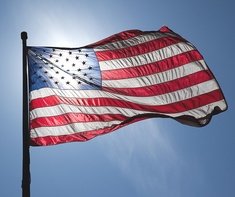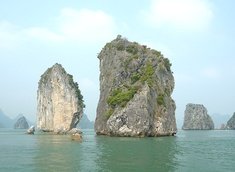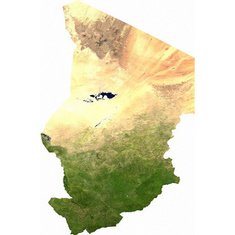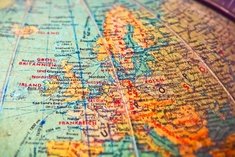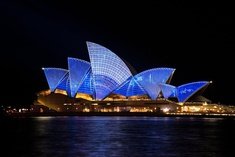Featured Quizzes
User Quizzes
Create Quiz
Data and Charts
Badges and Games
About JetPunk
JetPunk Shop
Dark Mode
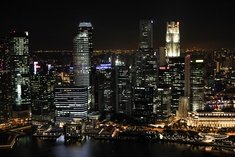
German cities by multiple clues
Select the German city which matches each description.
Save time by using Keyboard Shortcuts
Rate:
Last updated: May 29, 2024
You have not attempted this quiz yet.
More quiz info >>
| First submitted | May 29, 2024 |
| Times taken | 13 |
| Average score | 68.8% | Report this quiz | Report |
8:00
0
guessed
16 remaining
Time Used
00:00
Best Time
00:00
The quiz is paused. You have remaining.
Scoring
You scored / = %
This beats or equals
% of test takers
also scored 100%
The average score is
Your high score is
Your fastest time is
Keep scrolling down for answers and more stats ...
This city has two possible spellings in English, both equally valid. It gave its name to a British royal dynasty in the 1700s, and is the capital of Lower Saxony.
In 1534, an apocalyptic Anabaptist sect took power in this western city-state. They claimed all property, burned all books except the Bible, called it the "New Jerusalem" and required all citizens to be naked as preparation for the Second Coming. The city's name also has a link to a TV programme.
This city, not far from the Dutch border, has a football team called Borussia, which is the Latin word for Prussia. They won the 1975 UEFA Cup.
The birthplace of Einstein, this city lies on the Danube in Baden-Württemberg and has the tallest church in the world. It was also the home town of a fictional Monty Python character with an extremely long name.
The football team of this city is called Its Arminia [city name]. There is a running joke that this city does not really exist.
An old settlement thought to date back to the 9th century, it was an important city in the Middle Ages. In the chaotic aftermath of World War I, it became a free state. Revolutionaries took it over by force and attempted (unsuccessfully) to set up a Soviet republic. It also has a different name in English.
This city's football team, Dynamo, reached the semi-final of the 1988–89 UEFA Cup. The Sorbs, a Slavic ethnic group with their own language, reside in this area of Germany. It lies on the river Elbe.
Great thinkers such as Schiller, Hegel, Schlegel and von Humboldt all resided in this east German town. Its football team, Carl Zeiss, bear the name of the local optics-making company.
This is a main city of the Ruhr, the largest metropolis in Germany, which comprises many towns and cities. A heavy industrial area, it was the target of the Dambusters raid and much more bombing in World War II.
Formerly known as Karl-Marx-Stadt, its name comes from the Sorbian language. The city physician wrote an important publication on metalworking, De Re Metallica, in the 1500s. It is 25 miles south of Colditz Castle and about 25 miles from the Czech border.
This major port is an external exclave of a German city-state in the same area of the country. Their names are linked, as its name means "Port of [the other city]".
This small city was a focal point of the German Enlightenment and home to the likes of Goethe, Schiller, Liszt, Kandinsky and Paul Klee. Its name is used to refer to the German republic between 1918-1923; the constitution was signed in the city and it is here that the constituent assembly of the government would meet.
The football team of this modest-sized town in Rheinland-Pfalz have won four championships and two German Super Cups. 45,000 NATO personnel are also based in the area.
The Rote Armee Fraktion, the so-called Baader Meinhof gang, staged multiple terrorist attacks here. A city with a major European airport, its football team are called Eintracht.
One of the country's oldest cities, dating back to the 1st century BC. The birthplace of Beethoven, it took on an important role in 1949. Its football team are rubbish, though!
This Bavarian city on the Danube is the headquarters of Audi. Charles de Gaulle was imprisoned here during World War I.
Bielefeld
Bonn
Braunschweig
Bremerhaven
Chemnitz
Dortmund
Dresden
Frankfurt
Hanover
Ingolstadt
Jena
Kaiserslautern
Mönchengladbach
Münster
Ulm
Weimar
Correct!
Incorrect
You left this blank
Suggested Quizzes See all >>
Comments
No comments yet
New and Popular
Save Your Progress
Cities by multiple clues
Quiz series by XYU
...
Copyright H Brothers Inc, 2008–2024
Contact Us | Go To Top | View Mobile Site

